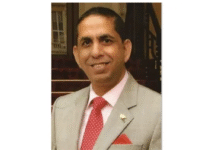Two United Nations human rights experts today urged the Government of Bangladesh to stay the execution of Muhammad Kamaruzzaman, leader of the opposition Jamaat-e-Islami party, condemned to death for crimes against humanity.
The United Nations Special Rapporteurs on summary executions, Christof Heyns, and on the independence of judges and lawyers, Gabriela Knaul, expressed serious concern at reports that Mr. Kamaruzzaman could be executed as early as Thursday 6 November 2014 at midnight.
Earlier this week, the Appellate Division of the Supreme Court confirmed Mr. Kamaruzzaman’s sentence to death handed down by the Bangladesh International Crimes Tribunal on 9 May 2013.
The International Crimes Tribunal is a special domestic court with the jurisdiction to try and punish any person accused of committing atrocities, including genocide, war crimes and crimes against humanity, in Bangladesh, including during the country’s 1971 independence war.
The United Nations human rights experts have on several occasions expressed alarm regarding serious violations of fair trial and due process guarantees in the judicial proceedings before the Tribunal that were reported to them.
“In countries that have not abolished the death penalty, capital punishment may be imposed only following a trial that complied with the most stringent guarantees of fair trial and due process,” the experts noted. “Any death sentence executed in contravention of a Government’s international obligations is tantamount to an arbitrary execution.”
“A person sentenced to death must also have the right to seek pardon or commutation of his sentence,” Mr. Heyns and Ms. Knaul stressed.
The United Nations Special Rapporteurs also reiterated their calls that all the defendants before the International Crimes Tribunal, including the Appellate Division, receive fair trials.









